The state of reading.
Steve Block, in comments for march 7, linked to this article in the Guardian in which Milan Kundera asks if literature is 'under threat from mediocrity and pointless proliferation.'
"Every novel created with real passion aspires quite naturally to a lasting aesthetic value, meaning to a value capable of surviving its author. To write without having that ambition is cynicism: a mediocre plumber may be useful to people, but a mediocre novelist who consciously produces books that are ephemeral, commonplace, conventional - thus not useful, thus burdensome, thus noxious - is contemptible. ...
When, one day, the novel's history will have ended, what fate will await the great novels left after that? Some are unrecountable, and thus inadaptable (like Pantagruel, like Tristram Shandy, like Jacques the Fatalist, like Ulysses). They will either survive or disappear as they are. Others, thanks to the "story" they contain, do seem recountable (like Anna Karenina, The Idiot, The Trial) and therefore adaptable to film, to television, to theatre, to cartoon strip. But that "immortality" is a chimera! For turning a novel into a theatre piece or a film requires first decomposing the composition; reducing it to just its "story"; renouncing its form. But what is left of a work of art once it's stripped of its form? One means to prolong a great novel's life through an adaptation and only builds a mausoleum, with just a small marble plaque recalling the name of a person who is not there." ...
"...For the history of art is perishable. The babble of art is eternal."
Kundera refers to so many Great Books in the piece that I find myself glancing at my shelf and noticing all that literature up there I've been hoping to get around to. For years. Perhaps it's time to admit I'll never read Cellini from the start and will only ever dip into his life, and then only once every five years. The Proust still sits hopefully at the front, But Pope and Boswell are barely visible under dust. Finnegan's Wake was begun enthusiatically, and may get begun again. There is just too much to read in the world and perhaps we all must be satisfied with knowing our specialized area. I guess mine might be described as the philosophy of art. I have many books relating to my particular enthusiasm which were devoured within days of coming into the house.
Leaving aside the 'Great Books' for a minute, and noting that I got Kundera's piece on the 'net, Umberto Eco has said that there are too many books in the world anyway. This was in a talk at a 1994 symposium in San Marino:
" People desire to communicate with one another. In ancient communities they did it orally; in a more complex society they tried to do it by printing. Most of the books which are displayed in a bookstore should be defined as products of vanity presses, even if they are published by a university press. As Landow suggests we are entering a new samizdat era. People can communicate directly without the intermediation of publishing houses. A great many people do not want to publish; they simply want to communicate with each other. The fact that in the future they will do it by E-mail or over the Internet will be a great boon for books and for the culture and the market of the book. Look at a bookstore. There are too many books. I receive too many books every week. If the computer network succeeds in reducing the quantity of published books, this would be a paramount cultural improvement."
It goes without saying that newspapers get short shrift here. My father-in-law thinks I don't know what's going on in the world because he has never seen me with a newspaper. Of course I get the headlines down the cable here and click on anything that looks earthshatteringly important. But like so many nowadays I depend on others to link me to the things I need to know about. Here's one in from my pal Mick Evans: a lightweight look at the blogging phenomenon in the Australian:
Blogged down in a swamp of other people's opinions
"Joel Stein, a columnist for the Los Angeles Times, yearns for the good ol' days. Tongue firmly in cheek (I think!) he says the email (or blog) address published at the foot of his columns is "the pathetic, confused death knell of a once-proud newspaper industry".
"Here's what my internet-fearing editors have failed to understand," he writes. "I don't want to talk to you; I want to talk at you."
Mick's read the whole thing for me and I scanned it quickly, so you don't need to read it at all. We saved you having to get down off your horse.
Hayley Campbell polices a different area of interest, and she sends this one from the Internet movie database: Man Cleared Of Murder By 'Curb Your Enthusiasm' Wins Damages
"A man cleared of murder after he was spotted in the background of outtake footage of TV comedy Curb Your Enthusiasm has been awarded damages of $320,000."
All you need to know is that a guy's alibi is that he was in the crowd filmed at a game between the Dodgers and the Atlanta Braves and that the Larry David comedy was being shot at the stadium on the same day. Hayley says " it's like a plot point right outta curb your enthusiasm!"
Now, you don't need to go over there to read the whole thing, which is very short, but I just did in order to make sure the link works, and found the story above it to be much more interesting:
"Pope Benedict XVI has criticized his late predecessor Pope John Paul II's decision to share the stage with American rocker Bob Dylan. The current pontiff, who took over as head of the Roman Catholic Church following John Paul II's death in 2005, believes rock music is the work of Satan and cancelled the annual Christmas pop concert at The Vatican last year."
Okay, I've taken care of that one for you, let's move on...
Heidi MacDonald links to this one in the Uk Telegraph (imagine the trouble necessary to look inside so many different newpapers from different countries in the days before the internet) , and my respect for Frank Miller as a writer just increased. The Eisner-Miller book from Dark Horse should have been this interesting. I can't find it again but there's a moment where Eisner describes Miller's work in very simplistic terms and Miller seems at a loss to argue differently. He puts things right here:
"Heroic sacrifice is the essence of civilisation," claims Miller, "which is in many ways a series of compromises that we make. For example, while growing up, I always hated the phrase 'crime doesn't pay'. Because it was clearly visible that it pays like crazy, and yet that's not really the reason not to do it. The reason is that we have a contract among ourselves not to do certain things, and to do certain other things, because that is what makes society possible."
These noble ideas were formed at an early age. Miller was born in Maryland and enjoyed a comfortable, middle-class upbringing in Vermont, his childhood spent running through the woods and visiting the cinema. "This was the era of Ben-Hur and that really captured the country's imagination. I saw Jason and the Argonauts and the Hercules movies and that sort of thing, and then one weekend my parents took my brother and me to the latest, which was The 300 Spartans."
And actually, the real reason my respect increased is that he correctly said 'my brother and me' in that last sentence (I get so pissed off at the incorrect 'I' in the object position.)
An inherent problem with blogging and the internet and the speed at which information is being ingested is that a lot of readers aren't attending to the details. I checked a few of the responses to my post "In thrall to cinematic principle."
Derik Badman wrote in his blog:
"Campbell argues against the use of cinematic terms in comics. I’m of two minds on this matter. On the one hand, I think it is important that comics have their own terminology…”
I responded in his comments box to point out that I wasn't talking about terminology at all:
" My argument essentially was that in thinking only cinematically an artist loses a sense of the picture and what the picture is supposed to do and what it is supposed to be about. When I used to read comics to my son, those Batman Adventures should have been ideal, but I found to my dismay that the 4 year old lad couldn't 'read' the pictures because of the way they were fragmented. There weren't enough complete pictures for him to relate the fragments to. I exempt Templeton's version from that criticism, he knew how to do it properly, but other than that we were all the way back to Gottfredson's Mickey mouse (then coming out from Gladstone) for our reading material."
Charles Yoakum, on the other hand, saw what I meant and offered this anecdote on his blog:
“I recall someone who was editing a version of the Marvel Universe guide discussing how hard it was to find a shot of Cyclops using his eye beams with the effect of the beams being shown in the same panel. He had to go all the way back to Kirby’s layouts in X-Men 13 or so to get the shot.”
The hypothetical artist takes it as a given that the reader knows what is supposed to be happening. After a few years and a few generations of this, we find that the artist 'speaks' in phrases, syllables, half sentences, which are indecipherable to somebody who is not in on the secret language. Kirby, hypothetically, was the last guy who bothered to show the whole picture. The hypothetical later artist just 'refers' to his example instead of recreating the experience anew for the reader.
Thus my rule, 'The entire drama of a given situation must be contained within each panel of the sequence of that situation', is a way of reminding the artist that no matter how familiar the 'experience ' may be to himself, the reader may be having it for the first time.
******
I've written about the much maligned thought bubble before. I must say I like the use of it in the Nora Jones video for 'Thinking about you.' An infinite universe of thoughts within thoughts.
******
My pal Brad Weber mentioned Raymond Scott in comments for march 8. There's a great site dedicated to Scott, his 1930s-40s orchestra and and his later pioneering work with electronic instruments with sound files, exhaustive listings of all the animated cartoons that used his music, and a short biographical comic by Justin Green. Is there anything that is not at our fingertips?.
"Every novel created with real passion aspires quite naturally to a lasting aesthetic value, meaning to a value capable of surviving its author. To write without having that ambition is cynicism: a mediocre plumber may be useful to people, but a mediocre novelist who consciously produces books that are ephemeral, commonplace, conventional - thus not useful, thus burdensome, thus noxious - is contemptible. ...
When, one day, the novel's history will have ended, what fate will await the great novels left after that? Some are unrecountable, and thus inadaptable (like Pantagruel, like Tristram Shandy, like Jacques the Fatalist, like Ulysses). They will either survive or disappear as they are. Others, thanks to the "story" they contain, do seem recountable (like Anna Karenina, The Idiot, The Trial) and therefore adaptable to film, to television, to theatre, to cartoon strip. But that "immortality" is a chimera! For turning a novel into a theatre piece or a film requires first decomposing the composition; reducing it to just its "story"; renouncing its form. But what is left of a work of art once it's stripped of its form? One means to prolong a great novel's life through an adaptation and only builds a mausoleum, with just a small marble plaque recalling the name of a person who is not there." ...
"...For the history of art is perishable. The babble of art is eternal."
Kundera refers to so many Great Books in the piece that I find myself glancing at my shelf and noticing all that literature up there I've been hoping to get around to. For years. Perhaps it's time to admit I'll never read Cellini from the start and will only ever dip into his life, and then only once every five years. The Proust still sits hopefully at the front, But Pope and Boswell are barely visible under dust. Finnegan's Wake was begun enthusiatically, and may get begun again. There is just too much to read in the world and perhaps we all must be satisfied with knowing our specialized area. I guess mine might be described as the philosophy of art. I have many books relating to my particular enthusiasm which were devoured within days of coming into the house.
Leaving aside the 'Great Books' for a minute, and noting that I got Kundera's piece on the 'net, Umberto Eco has said that there are too many books in the world anyway. This was in a talk at a 1994 symposium in San Marino:
" People desire to communicate with one another. In ancient communities they did it orally; in a more complex society they tried to do it by printing. Most of the books which are displayed in a bookstore should be defined as products of vanity presses, even if they are published by a university press. As Landow suggests we are entering a new samizdat era. People can communicate directly without the intermediation of publishing houses. A great many people do not want to publish; they simply want to communicate with each other. The fact that in the future they will do it by E-mail or over the Internet will be a great boon for books and for the culture and the market of the book. Look at a bookstore. There are too many books. I receive too many books every week. If the computer network succeeds in reducing the quantity of published books, this would be a paramount cultural improvement."
It goes without saying that newspapers get short shrift here. My father-in-law thinks I don't know what's going on in the world because he has never seen me with a newspaper. Of course I get the headlines down the cable here and click on anything that looks earthshatteringly important. But like so many nowadays I depend on others to link me to the things I need to know about. Here's one in from my pal Mick Evans: a lightweight look at the blogging phenomenon in the Australian:
Blogged down in a swamp of other people's opinions
"Joel Stein, a columnist for the Los Angeles Times, yearns for the good ol' days. Tongue firmly in cheek (I think!) he says the email (or blog) address published at the foot of his columns is "the pathetic, confused death knell of a once-proud newspaper industry".
"Here's what my internet-fearing editors have failed to understand," he writes. "I don't want to talk to you; I want to talk at you."
Mick's read the whole thing for me and I scanned it quickly, so you don't need to read it at all. We saved you having to get down off your horse.
Hayley Campbell polices a different area of interest, and she sends this one from the Internet movie database: Man Cleared Of Murder By 'Curb Your Enthusiasm' Wins Damages
"A man cleared of murder after he was spotted in the background of outtake footage of TV comedy Curb Your Enthusiasm has been awarded damages of $320,000."
All you need to know is that a guy's alibi is that he was in the crowd filmed at a game between the Dodgers and the Atlanta Braves and that the Larry David comedy was being shot at the stadium on the same day. Hayley says " it's like a plot point right outta curb your enthusiasm!"
Now, you don't need to go over there to read the whole thing, which is very short, but I just did in order to make sure the link works, and found the story above it to be much more interesting:
"Pope Benedict XVI has criticized his late predecessor Pope John Paul II's decision to share the stage with American rocker Bob Dylan. The current pontiff, who took over as head of the Roman Catholic Church following John Paul II's death in 2005, believes rock music is the work of Satan and cancelled the annual Christmas pop concert at The Vatican last year."
Okay, I've taken care of that one for you, let's move on...
Heidi MacDonald links to this one in the Uk Telegraph (imagine the trouble necessary to look inside so many different newpapers from different countries in the days before the internet) , and my respect for Frank Miller as a writer just increased. The Eisner-Miller book from Dark Horse should have been this interesting. I can't find it again but there's a moment where Eisner describes Miller's work in very simplistic terms and Miller seems at a loss to argue differently. He puts things right here:
"Heroic sacrifice is the essence of civilisation," claims Miller, "which is in many ways a series of compromises that we make. For example, while growing up, I always hated the phrase 'crime doesn't pay'. Because it was clearly visible that it pays like crazy, and yet that's not really the reason not to do it. The reason is that we have a contract among ourselves not to do certain things, and to do certain other things, because that is what makes society possible."
These noble ideas were formed at an early age. Miller was born in Maryland and enjoyed a comfortable, middle-class upbringing in Vermont, his childhood spent running through the woods and visiting the cinema. "This was the era of Ben-Hur and that really captured the country's imagination. I saw Jason and the Argonauts and the Hercules movies and that sort of thing, and then one weekend my parents took my brother and me to the latest, which was The 300 Spartans."
And actually, the real reason my respect increased is that he correctly said 'my brother and me' in that last sentence (I get so pissed off at the incorrect 'I' in the object position.)
An inherent problem with blogging and the internet and the speed at which information is being ingested is that a lot of readers aren't attending to the details. I checked a few of the responses to my post "In thrall to cinematic principle."
Derik Badman wrote in his blog:
"Campbell argues against the use of cinematic terms in comics. I’m of two minds on this matter. On the one hand, I think it is important that comics have their own terminology…”
I responded in his comments box to point out that I wasn't talking about terminology at all:
" My argument essentially was that in thinking only cinematically an artist loses a sense of the picture and what the picture is supposed to do and what it is supposed to be about. When I used to read comics to my son, those Batman Adventures should have been ideal, but I found to my dismay that the 4 year old lad couldn't 'read' the pictures because of the way they were fragmented. There weren't enough complete pictures for him to relate the fragments to. I exempt Templeton's version from that criticism, he knew how to do it properly, but other than that we were all the way back to Gottfredson's Mickey mouse (then coming out from Gladstone) for our reading material."
Charles Yoakum, on the other hand, saw what I meant and offered this anecdote on his blog:
“I recall someone who was editing a version of the Marvel Universe guide discussing how hard it was to find a shot of Cyclops using his eye beams with the effect of the beams being shown in the same panel. He had to go all the way back to Kirby’s layouts in X-Men 13 or so to get the shot.”
The hypothetical artist takes it as a given that the reader knows what is supposed to be happening. After a few years and a few generations of this, we find that the artist 'speaks' in phrases, syllables, half sentences, which are indecipherable to somebody who is not in on the secret language. Kirby, hypothetically, was the last guy who bothered to show the whole picture. The hypothetical later artist just 'refers' to his example instead of recreating the experience anew for the reader.
Thus my rule, 'The entire drama of a given situation must be contained within each panel of the sequence of that situation', is a way of reminding the artist that no matter how familiar the 'experience ' may be to himself, the reader may be having it for the first time.
******
I've written about the much maligned thought bubble before. I must say I like the use of it in the Nora Jones video for 'Thinking about you.' An infinite universe of thoughts within thoughts.
******
My pal Brad Weber mentioned Raymond Scott in comments for march 8. There's a great site dedicated to Scott, his 1930s-40s orchestra and and his later pioneering work with electronic instruments with sound files, exhaustive listings of all the animated cartoons that used his music, and a short biographical comic by Justin Green. Is there anything that is not at our fingertips?.
Labels: art theory
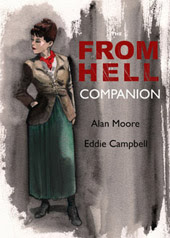
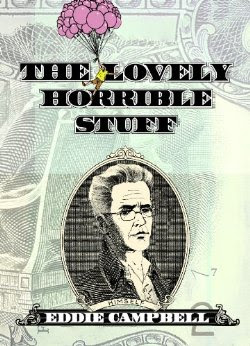

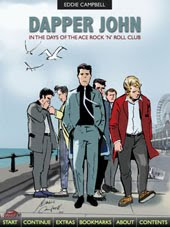
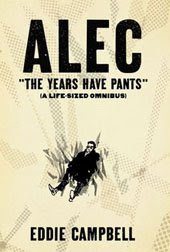
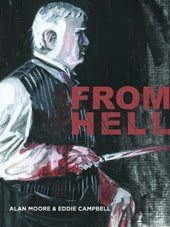
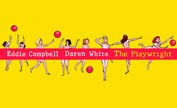
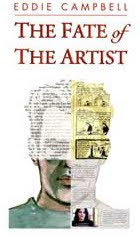
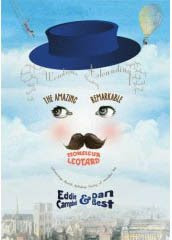
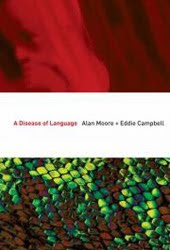
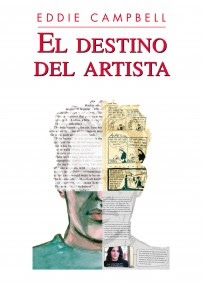
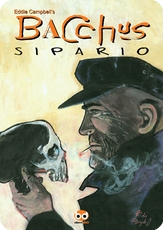
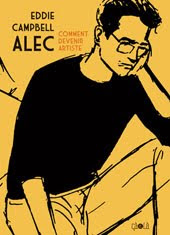

11 Comments:
But what of Doiby Dickles?
Regarding Frank Miller's use of "brother and me" in that Telegraph article: Newspapers often clean up the grammar in sources' quotes (usually only leaving in the mistakes of people they think it's safe to make sound stupid, like pop stars or the occasional politician), so that may or may not be what he actually said. It's probably best to give him the benefit of the doubt, though, and it was kind of jerky of me to point this out.
And Raymond Scott is great. Thanks for the links.
...and me can be the pedantic Joycean and point out it's always Finnegans Wake, never Finnegan's.
The thing is, I have a problem with peoples want to pick and chose what they will admit literature is, based on whether or not they approve of the context. I also don't have so much of a problem with braking a certain genre down to build it up as something similar, but new and different. Most times (I'll admit) it doesn't work out for the best, but sometimes it yields some wonderful results.I have so much to say on this, but as I have a baby in my lap, and my mother's in town, I'll have to hold off. Maybe I'll comment on this in my blog a week or two from now. Wizard World LA, is next weekend, by the way. Are there any friends of yours whose work I should look out for? Oh, and I never have time to read. I do the book on tape thing while I paint and drive. They're wonderful. Try it.
That's not to say I paint and drive at the same time.
I think reading great books or whatever, falls in the category of writing that novel. If you're not into it, why beat yourself up about it?
Too many writers upset about not writing, but they have nothing to say. So, go gardening for a couple of years! Or build a brick wall.
The worst thing to do is listen to a self-appointed 'authority' tell you what you should be doing with your life. Even if no one's actually telling you that, and you're making up the expectation from something you've read.
So, Eddie baby' (to quote that Monty Python sketch): where exactly is YOUR actual comment about thought balloons?
I dont see any article on it by yourself in the link to
'Monday, 18 December 2006- Hold that Thought balloon!'
Have you written a piece in which you give your own opinion about the use or not of thought balloons? I would be interested to see it.
- a fellow Scot on the other side of the world.
a paragraph at the bottom of the post
Was that a reply from you already?
That was quick!
- thanks, Sean
My last post did not seem to go through: briefly to say that Ive been reading your comics since 1985/86 and the first 'Escape' thin volumes. Recently I got all the Eddie Campbell/Top Shelf books.
Currently reading "After the Snooter' for the 2nd time. 'How to be an artist' is a particular delight since its interesting to see behind the scenes of that 80's UK comic world. I was at the time only 15/16 years old and JUST becoming aware of it. Recently Ive done comics things of various types with two people in the book: Ilya and 'the man at the crossroads' - so I begin to feel as if I too am becoming part of the fabric of this comic fiction/reality interlacing.
Anyway, your work is one of the main influences on my own comic productions - in terms of subject matter, approach, attitude. Not that this influence may be discernible in my comics, but its there somewhere in my mind.
So: thank you!
t hodler
if he didn't already know it, his editor Diana Schutz would have drummed it into him long before now.
john c
point taken
that's the least of my spelling crimes on this blog. I'm starting to think it's my eyesight. At normal distance from the screen i can't see if the i is dotted or not
Christopher, jack
nO! see my later post on Walter James
Sean,
thanks for commenting. My comments on the thought balloon? To your satisfaction?
Eddie
Post a Comment
Subscribe to Post Comments [Atom]
<< Home